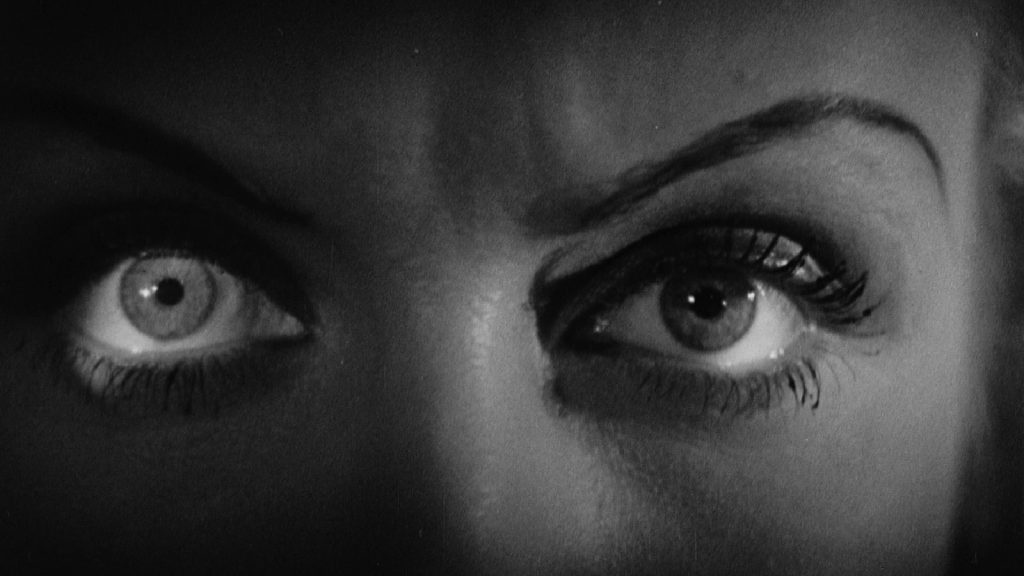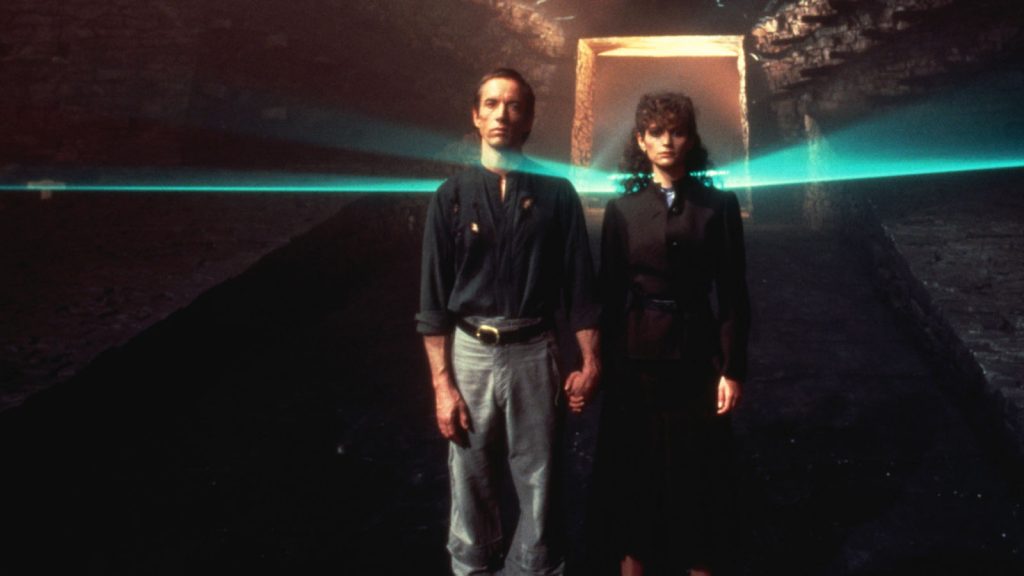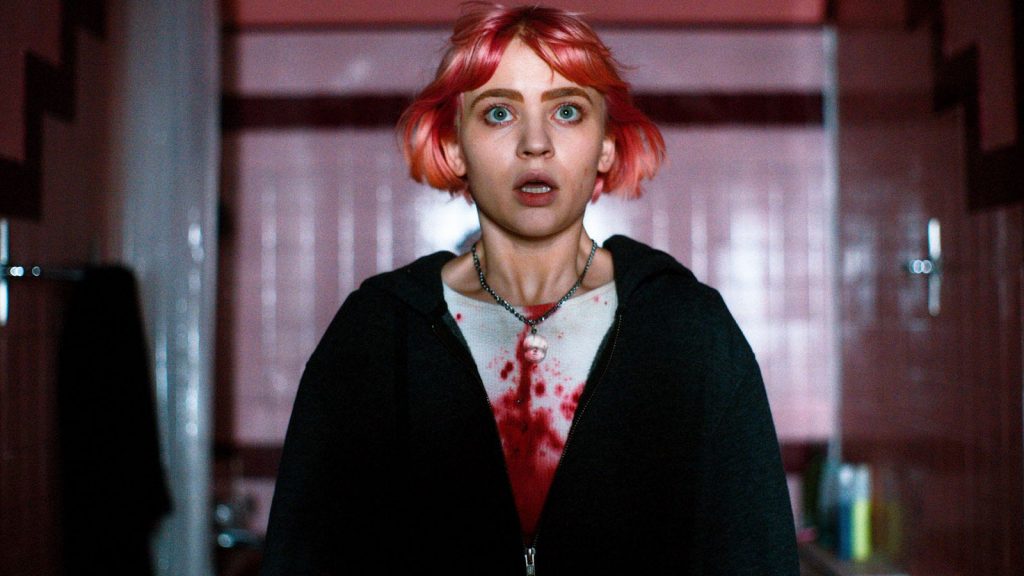
We speak of unreliable narrators, but what of an unreliable film? That is, a movie that purports to tell one story but may in truth be telling another. Can such a film be worth seeking out for reasons outside the purview of its own intentions?
Based upon the 1955 novel of the same name by Laurence Meynell, Montgomery Tully’s The House in Marsh Road (1960) theoretically belongs to that subgenre of films with a benevolent ghost. These works are usually uplifting; they restore our faith—which always seems a pressing concern—in humanity. Despite the arbor being chockablock with bad apples, there are people out there—even if they’re dead—who are sufficiently kind that not only may they help us with their altruistic intercessions but also by providing the vital hope that the world isn’t always as dark as we’ve determined. Generally, these movies—The Ghost Goes West (1935), Topper (1937), The Canterville Ghost (1944)—are whimsical and clever. They have a nimble touch. Wit is paramount.
The House in Marsh Road is a friendly-ghost movie in which none of this goes. We begin by meeting our married couple, Jean (Patricia Dainton) and David (Tony Wright) Linton, as he lies to their latest landlady about the rent they can’t afford and his wife appears to be fine with the deceit. We wish to label both of them as bad people straight off, but the film undercuts our expectations. At times, you think he might be okay after all, and we get a sense for what a caring, thoughtful person she is upon inheriting the old country home of the movie’s title from her deceased aunt.
Postwar British films up through the early 1960s had this knack for being amalgamations of various styles that could put them at odds with how they were billed—as a single type of movie—on their own posters, and that’s certainly The House in Marsh Road. David is a person determined to remain unhappy and blame his emotional state of affairs on whom- and whatever is nearest to hand. He boozes at the local pub, leaving his wife to further grow into herself. She’s starting to flourish. David hires a typist (Sandra Dorne) for his work as a writer who struggles to write. She’s one of those secondhand types of people who make a life of passing from person to person, and soon David hits upon the idea of killing his wife, selling her house and copping the funds, and doing who knows what with the woman he doesn’t love who doesn’t love him.
The house, though, came with a ghost, and the ghost takes up the role of Jean’s protector. This is a get-down-to-business ghost, but this is a get-down-to-business film, a rare example of kitchen-sink realism crossing with the supernatural. The ghost is very real, as is the depiction of alcoholism, infidelity, and what it means to be trapped in a marriage in different manners for different people.
The film’s ending—the comeuppance portion—is among the darkest in all British pictures of this era. We know what David and his girlfriend are, but the “good” ghost may ultimately be worse than anyone here, even while it’s looking out for Jean, who’d be wise to keep on her own best behavior should the spirit of Marsh Road accompany her to her next home. 🩸

is the author of eight books, including the story collection, If You [ ]: Fabula, Fantasy, F**kery, Hope, a 33 1/3 volume on Sam Cooke’s Live at the Harlem Square Club, 1963, Meatheads Say the Realest Things: A Satirical (Short) Novel of the Last Bro, and a book about 1951’s Scrooge as the ultimate horror film. His work has appeared in Harper’s, The Atlantic, Rolling Stone, The New York Times, Vanity Fair, The Daily Beast, Cineaste, Film Comment, Sight and Sound, JazzTimes, The New Yorker, The Guardian, and many other venues. He’s completing a book called And the Skin Was Gone: Essays on Works of Horror Art. His website is colinfleminglit.com, where he maintains the Many Moments More journal, which, at 2.7 million words and counting as of autumn 2023, is the longest sustained work of literature in history.
One of the most beloved horror movies of the 1940s that didn’t have the name Val Lewton attached to it, Paramount’s The Uninvited is a classy, atmospheric chiller that remains transgressive to this day.
BY MICHAEL KORESKY | October 31, 2021
People who peruse vintage TV programming schedules are used to seeing horror movies billed as something other than “horror,” as if the term was to be avoided whenever possible. Instead, one will encounter...
BY COLIN FLEMING | October 24, 2024
Uniting his powers of visual storytelling and his understanding of human foibles, Hitchcock served up a top-notch melodrama and spy thriller with Notorious. After making short films on behalf of the British war effort...
BY ANN OLSSON | June 13, 2022

This pre-Code offering packs a lot of story into its typically brisk running time, with several plot threads weaving together a (not always successful) tapestry of spooky and criminal doings.
READ MORE >
BY ANN OLSSON | Month 00, 2021

In what could be the fastest-resulting rape revenge movie, a drunken lout brutally forces himself on Ida, the young woman who doesn't return his affections, during a party over Labor Day.
READ MORE >
BY LAURA KERN | Month 00, 2021

Beast is a lot of movies in one package - fractured fairy tale, belated-coming-of-age story, psychological drama, regional horror film - but above all it's a calling card for its leading lady, Jessie Buckley.
READ MORE >
BY LAURA KERN | Month 00, 2021